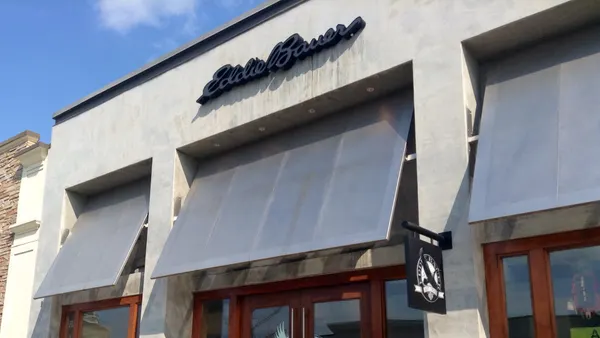Dive Brief:
-
PayPal and MasterCard announced an expanded partnership Tuesday enabling consumers to to use PayPal’s payment services in brick-and-mortar stores.
-
Per terms of the agreement, PayPal will allow users to select a MasterCard credit or debit card as their default payment method and share data on transactions completed using MasterCard’s tap-and-pay feature. In addition, shoppers and small businesses will be able to instantly cash out funds held in their PayPal accounts to a MasterCard debit card. PayPal will receive financial volume incentives and will no longer be subject to digital wallet operator fees.
-
The move follows a July agreement between PayPal and Visa where PayPal agreed to stop discouraging its customers from using Visa, and Visa pledged to keep its fees to PayPal in check.
Dive Insight:
PayPal, which split from former parent eBay in 2014, is working hard to catch up in payments beyond the desktop-based web. Agreements with the major credit card issuers are part of its effort to become a wider choice for payment in stores and on mobile, as well as to answer to Apple Pay (and, for smaller merchants, Stripe).
But the moves are fraught for PayPal. Investors frowned upon the company's deal with Visa, contending the move makes PayPal a more traditional payment system and pulls away from its stance as a payment innovator. Shares fell as much as 9% after that deal was announced.
The deal with Visa (and now, presumably, also MasterCard) "seems to pave the road for PayPal to get more in-store payments,” Scott Fitzgerald, SVP of marketing at global commerce services and payments company BlueSnap, told Retail Dive in July. “That’s the big one.”
However, PayPal will likely be handing over more in fees because they will be higher than the bank account withdrawals that currently dominate PayPal’s system. PayPal has been making more money on the transactions it enables because the fees associated with ACH payments (where a user accesses a bank account rather than a credit card) are lower and flatter compared to the higher, percentage-based fees of credit-card transactions. As purchases grow, the differences widen, considering that those credit-card percentages can get hefty.
Investors are apparently also wary of the move because it may temper PayPal's disruptiveness, which is often the source of heightened investment returns. The company is in a tough spot, considering the stiff competition in payments and the ongoing scramble to gain traction among consumers, who still mainly opt for their "top of wallet" credit card.
“When it first started, I saw PayPal as a disrupter, but now [it’s] more a part of the traditional ecosystem,” Ned Elton, chief growth officer of business payments startup PEX, told the Wall Street Journal in July. “Visa is ubiquitous, and it’s tough to overcome that.”
In a statement Tuesday, PayPal president and CEO Dan Schulman argued that the MasterCard deal is good for both its customers and the company itself.
“Customer choice and partnership are fundamental principles for PayPal that guide how we operate as a company, giving our customers greater opportunities to more easily manage and move their money online, in app and in-store,” Schulman said. “With each partnership agreement that we sign, we further expand the ubiquity and value of the PayPal brand and improve our own economics."















